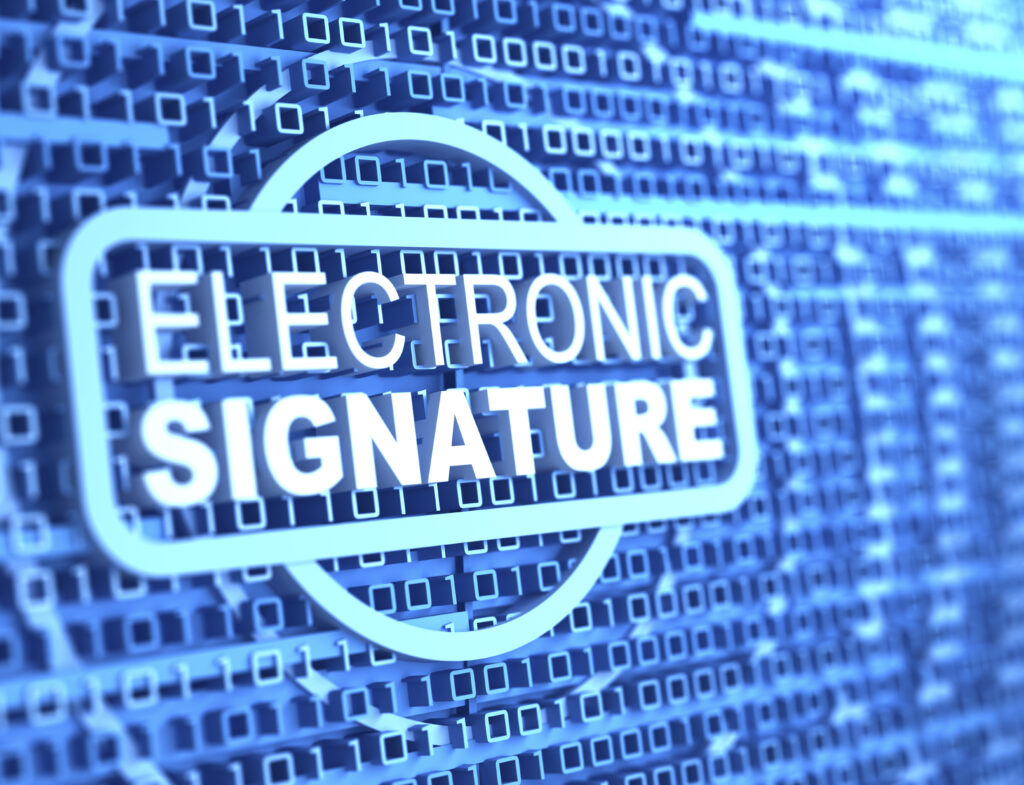
Electronic Signatures–Same as Paper in North Carolina
Although electronic signatures have maintained an “equivalent to paper signature” status in North Carolina since 1998, their current use in commerce has remained surprisingly minimal. Perhaps that is about to change since e-signatures and their enforceability have become a talking point of late within the finance industry.
Some brief history. In 1998, North Carolina began recognizing e-signatures within public agencies through the North Carolina Electronic Commerce Act Signatures Act [N.C.G.S. 66-58.1]. The Act was designed to “facilitate electronic commerce with public agencies and regulate the application of electronic signatures when used in commerce with public agencies.” [N.C.G.S. 66-58.1]. Two years later, North Carolina adopted the Uniform Electronic Transactions Act [N.C.G.S. §66-312 et als.] (“UETA”), essentially recognizing e-signatures as equivalent to paper signatures in the private sector.
What does all this mean?
Basically, a record or signature may not be denied legal effect or enforceability solely because it is in electronic form [N.C.G.S. § 66-317(a)]. Similarly, a contract may not be denied legal effect or enforceability because an electronic record was used in its formation [N.C.G.S. § 66-317(b)]. In the official comments, the North Carolina legislature states “[A] transaction may not be denied legal effect solely because there is not a pen and ink ‘writing’ or ‘signature.’”
There should be little concern with interstate use across the U.S. as the UETA enjoys nearly universal acceptance, with adoption in forty-seven (47) states, the District of Columbia, Puerto Rico, and the Virgin Islands, and laws in place that recognize e-signatures in the three (3) remaining states.
For those who wish to contract and conduct business electronically in North Carolina, the door appears open to doing so. However, before wading into these waters, the following must be kept in mind:
Parties must consent to the use of electronic means for their electronic signature to be valid. (Signing party’s intent is the controlling factor in determining the legal significance of that party’s electronic signature.)
It is best practice to put consumers on notice of the significance of the records they are signing.
It is best practice to use a secure electronic database or system, complete with password protection, for the electronic records at issue. (Such security mechanisms will thwart forgery allegations and establish that the signing party was the person responsible for making the electronic communications and their electronic signature.)
Electronic sales, contracts, agreements, signatures, etc. still must comply with the law governing those records.

